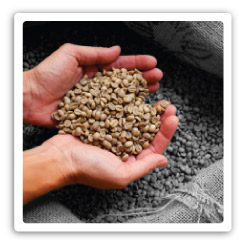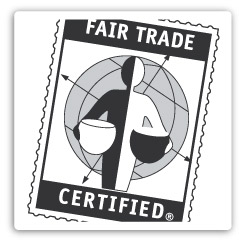- New ItemsProducts we've added within the last 3 months.
- Top TenTop Ten list of best selling products for April
- BusinessCreate a business account for your caf?, church, school, etc..
- BPS® BlogPromotions, recipes, tips and more!
- Ask the ProsArticles, tools and other
information to help you grow your business. - Find-A-Mug

By Category
Search
By Author
- Kari Guddeck (5)
- Josh Taves (3)
- Tom Palm (2)
- Dan Olson (2)
- Bill Guddeck (2)
- Alexa Chausse (2)
- Steven McCoy (1)
- Eliot Jordan (1)
- Andrea Ramirez (1)
- Kate Schade (1)
- Ari Satinover (1)
- Matthew Moseley (1)
- Jared Umsted (1)
- Paul Maxwell (1)
- Jay Weller (1)
- Greg Fisher (1)
- Julia Leach (1)
- Greg Lefcourt (1)
- Annelies Zijderveld (1)
- Amy Gross (1)
Let's Talk Fair Trade!
by Dan Olson, National Sales Manager @ Third Street Chai

Much has been made about Fair Trade coffee, which now represents about 7.1% of US specialty coffee sales (and 3.3% of total US coffee sales). But what exactly does "Fair Trade Certified" mean? And why are so many coffee shops opting to serve Fair Trade coffee?
Fair Trade Certification verifies that the coffee you are serving (or buying) was grown and processed according to an international set of standards, established by a third-party certification agency (TransFair USA in the United States). These standards ensure that the coffee farmer (or cooperative) was paid a fair price for their crop, and that the coffee was produced under fair labor conditions and according to specific environmental standards. Additionally, it ensures that a portion of the sale price goes directly back to the farmers, who use this money to foster economic and social development.
How does it work?
In order to be Fair Trade Certified, importers pay a minimum floor price (currently $1.25/lb) that is high enough to allow a farmer to sustain their livelihood. Importers also pay an additional organic premium of $.20 per lb and a Fair Trade premium of $.10 per lb. The Fair Trade premium goes directly back to the cooperatives, who use the funds to help themselves develop both economically and socially (by building schools, investing in new machinery, etc). TransFair USA monitors the international supply chain and ensures that the coffee is produced according to Fair Trade standards and that importers are paying the correct prices. If these criteria are met, TransFair then grants the use of the Fair Trade symbol, which tells consumers that certain standards were met in the production of the coffee and allows them to make educated decisions about what products to purchase.
Why is all this necessary?
The Fair Trade movement developed in response to the steep decline in coffee prices in the late 1980's. Farmers, unable to earn a livable income from selling coffee, began to either leave their farms or suffer in extreme poverty. Often located in remote regions, coffee producers had no access to the international market (or to international commodity prices) and were often forced to sell their crop to the first (and only) middleman that came around at an extremely low price. So exploitive was this system that the coffee purchasers are commonly referred to as coyotes.
In response, the Fair Trade Certification system was developed to ensure that farmers receive a fair price for their crops, work under fair labor conditions (including democratically-run cooperatives), and produce their crops in an environmentally and socially sustainable way. By using the Fair Trade symbol, the Fair Trade system allows consumers to "vote with their dollar" and support products that are produced in a certifiable sustainable way.

Why should I serve Fair Trade Certified products in my shop?
For coffee shops and café's, serving Fair Trade Certified coffee and teas are a great way to demonstrate their commitment to both high quality coffee and to sustainable social and environmental practices. As the Fair Trade movement grows, consumers are increasingly demanding to know where the drinks they are consuming come from and how they are produced.
What's the difference between Fair Trade and Direct Trade?
Instead of attaining third-party certification, many companies opt instead to go to a model of Direct Trade - buying directly from producers, which helps them develop sustainable agricultural practices, and pays a fair price for their coffee. While the benefits of direct trade can be tangible and it avoids the numerous hassles of working with an outside certification agency, there is also no official way to verify that the farmers are actually receiving any benefits. Thus, the consumer must rely entirely on the word and reputation of the company.
What other products are Fair Trade Certified?
In addition to coffee, TransFair USA also certifies other commodity products, including cocoa, cut flowers, fruit and vegetables, spices, wine, and tea. Fair Trade Certified loose and bagged teas are fairly common, with many companies offering a wide variety of certified teas from several origins. Third Street Chai is the only company that offers a Fair Trade Certified chai concentrate, all of their chai flavors are made with Fair Trade Certified teas.
Serving Fair Trade Certified products is a great way for you to distinguish your shop from others and to provide your customers with the socially responsible products that they demand. Most importantly, by choosing Fair Trade Certified products, you help sustain the farmers who provide you with your coffee and tea and do your part to help preserve the environment.
For more information and for Fair Trade POS, check out the TransFairUSA website at www.transfairusa.org
